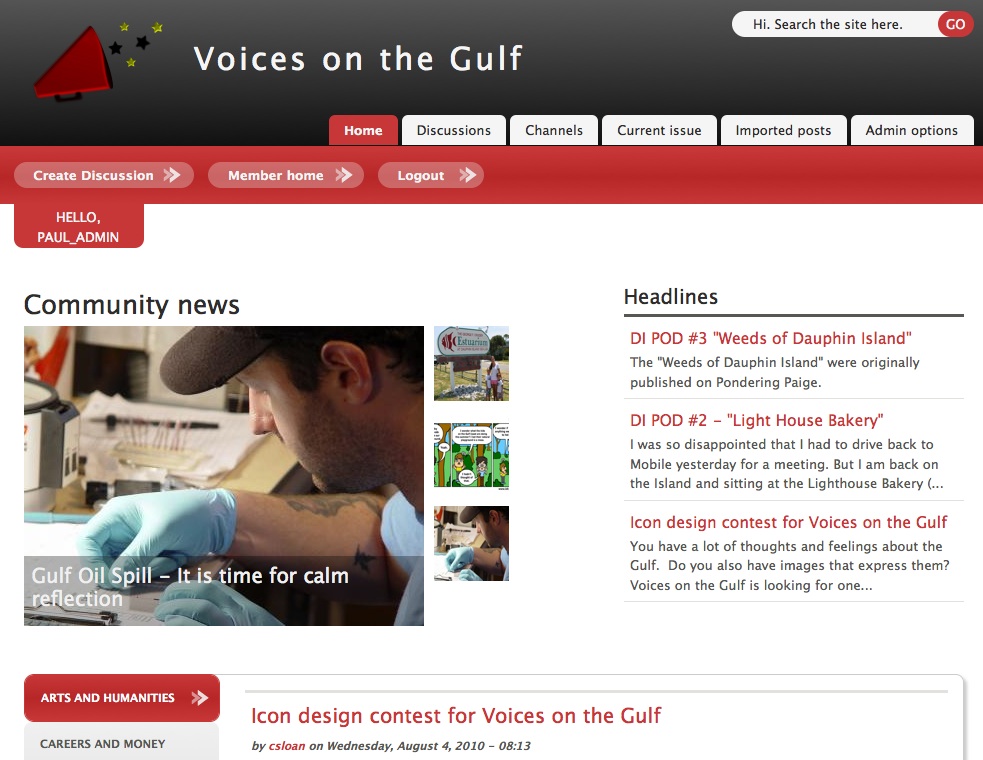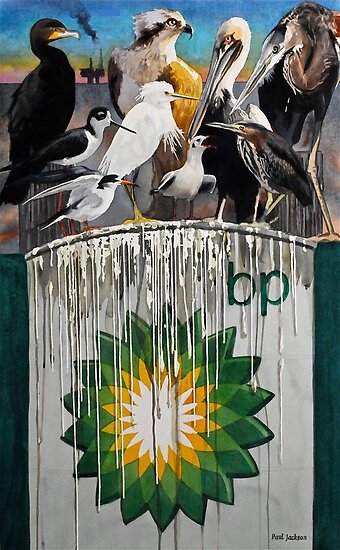The series of podcasts about the Gulf oil spill that we started at the beginning of June continues on this episode of Teachers Teaching Teachers.
We are joined by Alicia Blair a 5th grade science teacher from Mississippi who has been an important voice on many of these podcasts this summer.
It was also a delight to listen to Ann Dobie, author, professor, and former Writing Project Director from Louisiana.
Ann Brewster Dobie taught at the University of Louisiana at Lafayette for thirty-eight years, where she is now professor emerita of English. She directed graduate studies in rhetoric and the university’s writing-across-the-curriculum program. She is the author or coauthor of six college writing textbooks and author of numerous articles on literature and composition. She is the editor of Something in Common: Contemporary Louisiana Stories, Uncommonplace: An Anthology of Contemporary Louisiana Poets, and Wide Awake in the Pelican State: Stories by Contemporary Louisiana Writers. Ann received her doctorate in the teaching of writing from Columbia University.
Biography on http://anndobie.com Given our interest to work with teachers in the Gulf to collect the stories of students there , take a look at this description of Ann Dobie’s newest book, Fifty-Eight Days in the Cajundome Shelter, which was published in 2008.
, take a look at this description of Ann Dobie’s newest book, Fifty-Eight Days in the Cajundome Shelter, which was published in 2008.

Fifty-Eight Days in the Cajundome Shelter
Hurricanes Katrina and Rita destroyed thousands of homes, schools, and businesses across the Gulf Coast and changed the face of southeast Louisiana forever. However, nearly a hundred miles northwest of New Orleans, in Lafayette, Louisiana, a different story was unfolding. As men, women, and children waited on their roofs for rescue, executive director Greg Davis hurried to prepare the Cajundome in Lafayette as an emergency shelter.
The workers and volunteers in the Cajundome provided food, showers, and medical care to more than eighteen thousand evacuees that came to Lafayette. From the first busloads of newly homeless to the disasters caused by Hurricane Rita, “Fifty-Eight Days in the Cajundome Shelter” shares personal accounts of heartache and joy, tragedy and triumph. For the first time, here is a collection of the stories of the volunteers and evacuees. Their heroism, courage, and despair are etched into these stories as they endured the first few weeks in a hurricane-ravaged world.
Retold here is the bravery and leadership of Donald Williams as he took charge and led a convoy of handicapped and elderly to safety. Readers will also be captivated by the unforgettable story of the Prevost family as they climbed their way to the roof of their home and their heartbreaking journey to dry land on I-10. The author includes her own personal accounts of what really happened in the aftermath of Katrina and the bravery and selflessness of countless people who struggled to make a difference.
We are excited about the number of teachers who have joined us this summer for this exploration into how we can be good neighbors with our friends in the Gulf Coast. Al Doyle, a NYC teacher of gaming, joined us from the woods of a summer camp in Maine, and a new teacher Rebecca from Pennsylvania, had some things to say as well.
Some of the things to listen for in this podcast are some of the reasons we have been working with Bill Fitzgerald at FunnyMonkey to build an extension of our Youth Voices site. Two quotes from this podcast help define our mission for Voices on the Gulf:
I think sometimes when your there at that Ground Zero, if I can borrow that phrase, it's a little overwhelming. But I talked with several people and got together with our [Writing Project] director, and we just had a real brainstorm. And we went back again to our experience with Katrina. What did we end up doing? Not that we ever planned any of these things. It was more the spontaneous improv sort of thing. So we went back and we looked at the things that had been successful, and thought about what we would like to do for the oil spill. This time planning, with the goal being: We want to publish! We would like to do that this time.... This whole experience that we've had this summer in trying to brainstorm how to bring student voices out has really inspired us to take the initiative, instead of waiting until we see it through like we did with the hurricane, to make those efforts.
--Alicia Blair, high school science teacher and member of the Live Oak Writing Project, University of Southern Mississippi, Gulf Coast
In Louisiana after Katrina and Rita our [Writing Project] sites published any number of anthologies of student writing about those hurricanes, and about what it meant to live through the hurricanes, but even more so, through the clean up and the rebuilding. I have no doubt that that's going to happen again because our teachers always capitalize on those things which are happening in students' lives and their families' lives, and use those as sources of writing and a kind of catharsis. I have no doubt that it will happen.
--Ann Dobie, professor emerita of English, University of Louisiana, director of the Louisiana Writing Project State Network and former director of the National Writing Project of Acadiana
Also, please read:
Click Read more to see a copy of the chat that was happening during the webcast.






